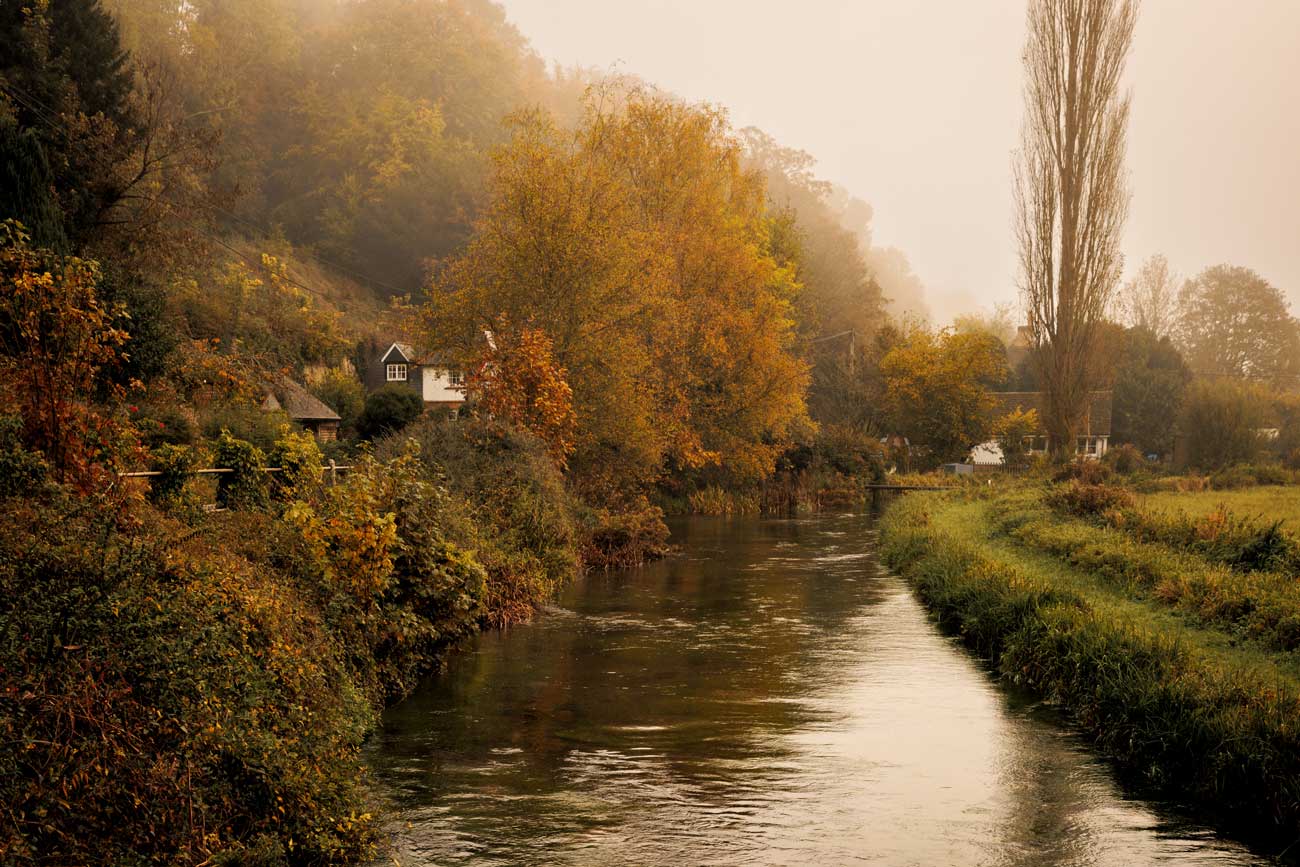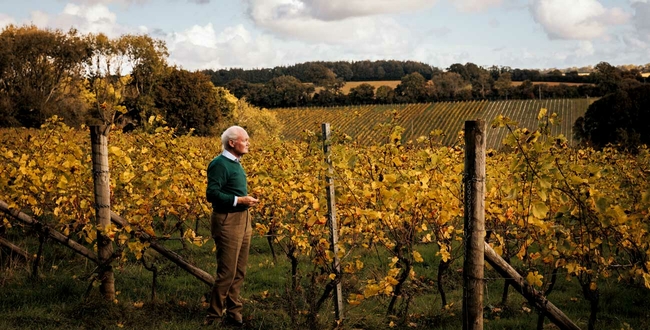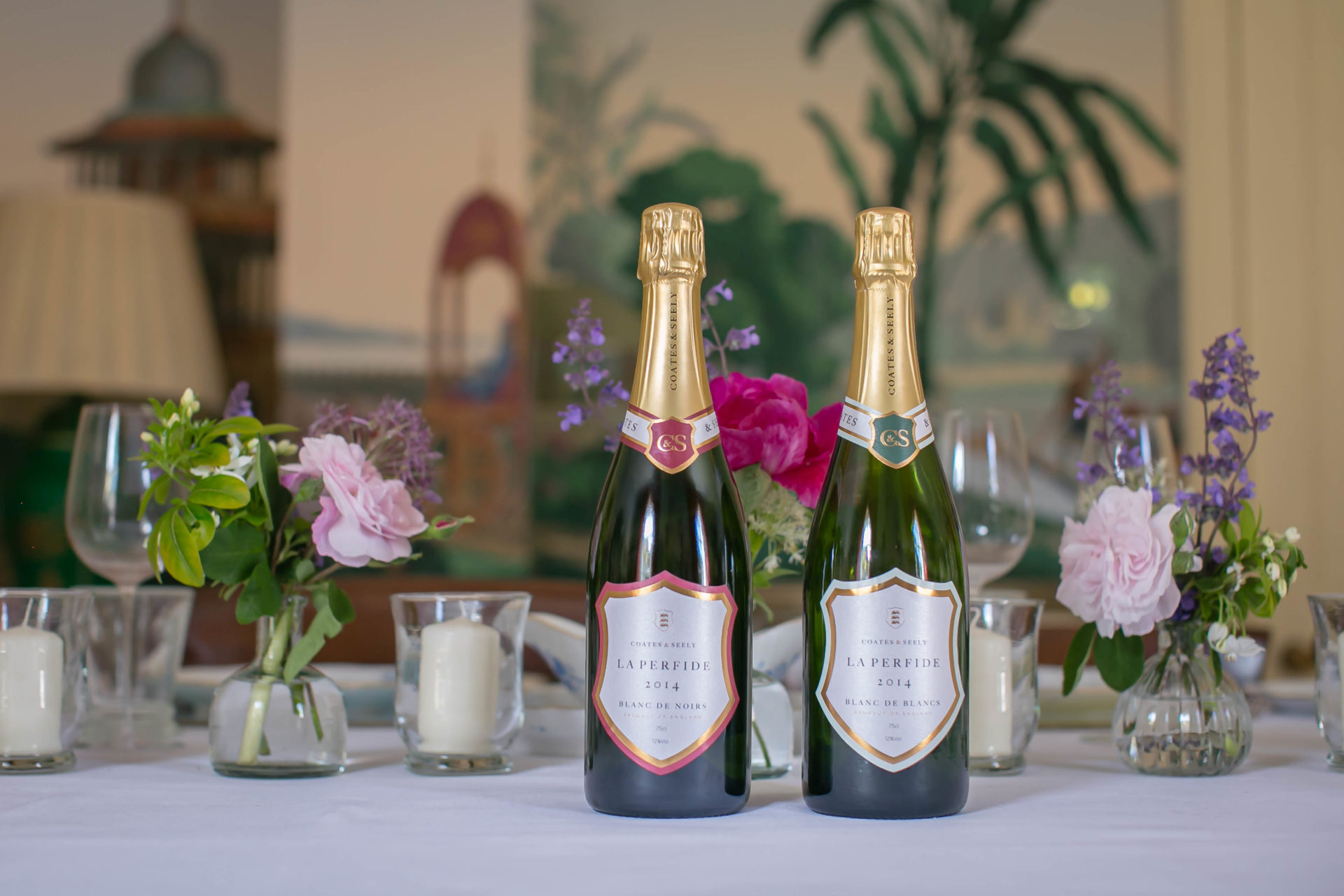The road to English sparkling wine, the new Eldorado of Champagne houses.
December, 2023
In the south of England, enlightened winegrowers have embarked on the adventure of sparkling wine with insolent success. From Kent to Wiltshire, an sparkling trip between young vines, old cottages and English gardens.
Across the Channel, we find “English champagne”, that the rules of the AOC prevent us from calling it that. Should we have fun with it, be wary of it, rejoice in it? Could this soon be the end of French hegemony in the kingdom of the fine bubble? Are our best enemies playing fair? How do they go about it? And why the hell do they drive on the left? We leave London with our minds torn by a thousand questions.
Vines on Chalky soils
We head towards Hampshire via a network of small roads lined with hedges. What have we done at home to lose these wonders? Nightingales, foxes, pheasants, quails, owls populated, as here, these green walls that the land consolidation reduced. Luckily, the English countryside has retained its hedges. It undulates from hill to hill, carrying on its back meadows sown with sheep, orchards, fields of barley. All this can only be appreciated by following these roads so narrow that it is difficult to cross paths. In this part of the South of England, taking the motorway is heartbreaking, worse: a lack of taste.

On a foggy morning, we reach a children’s storybook village. Wherwell has its sleepy cottages on the banks of the River Test, famous for its trout. The thatched cottages look like mushrooms. The fences are so low that a child could climb over them. Small doors, windows with tiny panes. We expect to come across Peter Rabbit, a badger, a tit or some other Beatrix Potter creature. Herons pose with their feet in the watercourse. Ducks with a mocking air slide into the waves. Even the banks look like gardens.
Not far from there, the Coates & Seely estate produces the most subtle sparkling wine we have ever tasted. Tweed trousers and cufflinks, Nicholas Coates welcomes us to his Georgian home. A fire roars in the pink and pale blue living room, decorated with family portraits. His wife Virginia has prepared canapés: Winchester cheese, Test trout, Quails eggs. The feast continues in the formal dining room. The dishes are exquisite. We never let go of our glass of sparkling wine rosé: aromatic nose, beautiful balance, elegant mousse, long finish. Thanks to the bubbles the discussion sparkles, swirls, without slipping.

The estate occupies a hill where barley grew, among sheep meadows. Thirty hectares of chardonnay, pinot noir and pinot meunier, to which are added this year twenty hectares on the Isle of Wight, just as chalky as here. The adventure is underway. Nicholas left his investment bank in 2007. “Planting a vineyard is an investment over eight or nine years.” A risky investment? “With my partner Christian Seely, director of Axa Millésimes, we said to ourselves that if we failed, we would at least have enough wine for the rest of our days!” The vintage Coates & Seely are named: La Perfide. But it’s a benevolent irony. Nicholas knows what English sparkling wine owes to France. “English terroir, Champagne know-how,” he sums up.

Together we travel the Hampshire Downs, large waves of limestone topped with century-old beech trees, which have little in common with the false Verzy trees, the twisting beech trees of the Reims mountain. At this stage of our trip, should we still compare Champagne and the English South? The two go together. “Today, all the great restaurants in London have sparkling wine on their menu,” says Nicholas. We are at Fat Duck, Core by Clare Smyth, Peninsula London. The snobbery which consisted of only drinking Veuve Clicquot is tending to disappear. The younger generation no longer has this loyalty. Many prefer sparkling wine because it’s local, English… and simply very good.” Indeed, we think as we dip our lips into the perfidious beverage.

